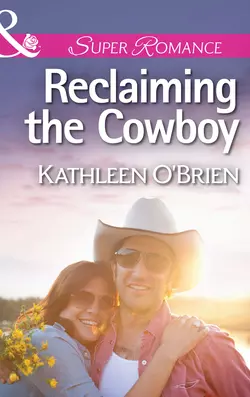Reclaiming the Cowboy

Kathleen OBrien
Тип: электронная книга
Жанр: Современные любовные романы
Язык: на английском языке
Стоимость: 150.68 ₽
Статус: В продаже
Издательство: HarperCollins
Дата публикации: 16.04.2024
Отзывы: Пока нет Добавить отзыв
О книге: This cowboy isn′t so easy to catch! When Mitch Garwood ran away with Bonnie O′Mara, he thought he′d found forever. But all his dreams crashed the morning he woke alone. Months later, he′s immune to her reappearance. Even if she′s now using her real name–Annabelle Irving–and ready to tell him her secrets, he′s done.Too bad the situation is not that simple. Annabelle′s willingness to leave her money and position behind so she can work at Bell River Ranch and be near him surprises Mitch. Despite his resolve, the spark of attraction flares again. The most compelling part? Her determination to win him back!